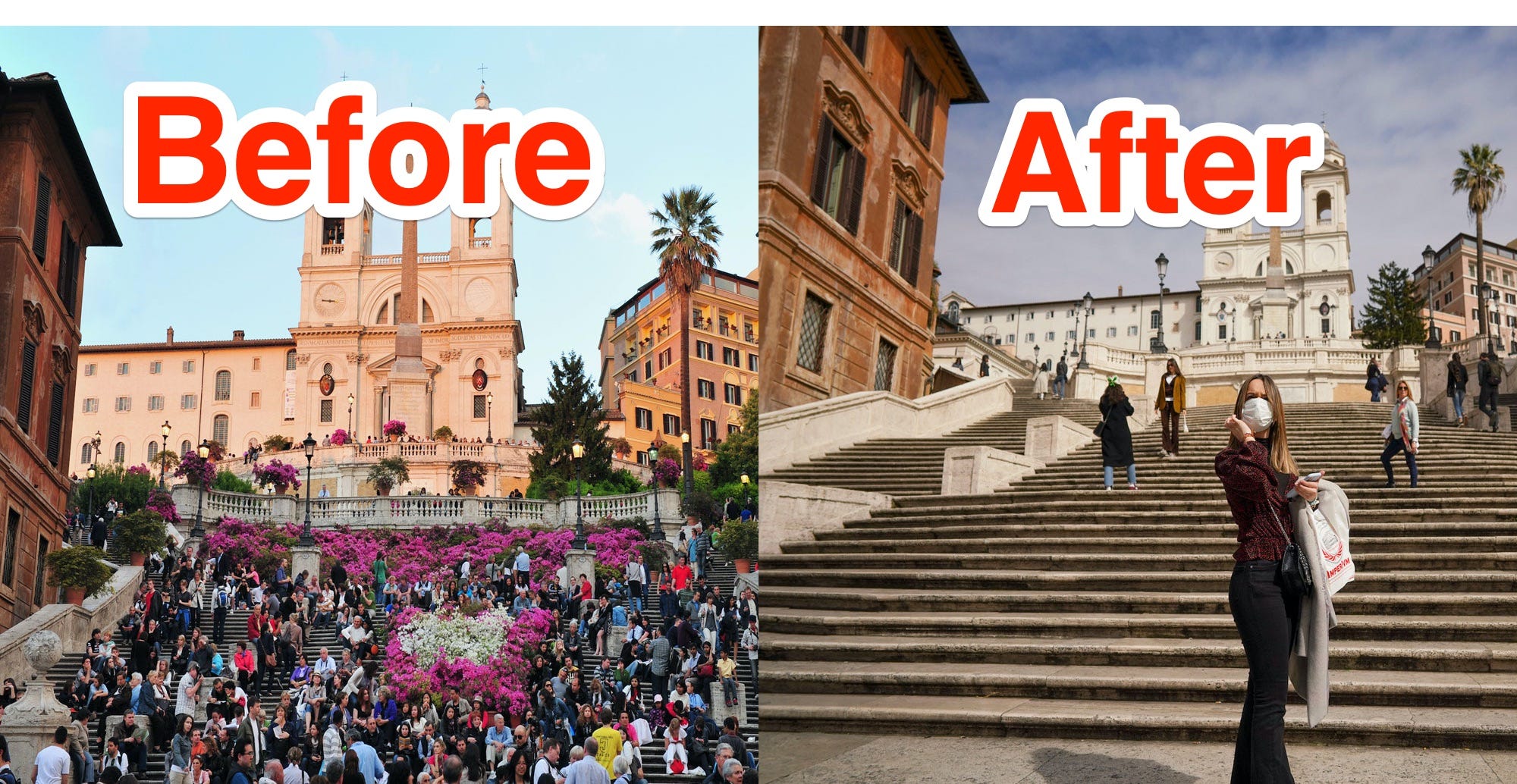What are the things we need to learn from this lockdown situation?

How do we support the return to normality? Currently our buildings are locked, people are not permitted to congregate, our lives are “not normal”.
Well, what is normal? We may see that Nature, in this crisis, positively heals. The lagoons of Venice, the smog amidst Beijing, and the urban foxes and even goats may be signs that, if we learn, nature can and will return to growth.
For some, the eerily quiet urban landscapes, now devoid of cars and commuters may not have made a significant difference, whereas for others, they can explore the myriad of country lanes and enjoy the beautiful weather amongst the hedgerows.
We also may see that whom we have previously declared as ‘low-paid workers‘ are now seen as highly prized ‘key workers‘. We may have been constrained to purchasing from local suppliers, maintaining the livelihood of local businesses.
Our understanding to return to normality, is wholly based upon what normal do we choose to return to.
Robert McIntosh purportedly said that “do not let a good crisis go to waste” – we may critique what defines a ‘good’ crisis but the point may be taken. As a community, we may be loosely connected even when physically apart, we may now need to think creatively about how to re-connect more extensively.
Whereas at Easter we found that Christ wasn’t hiding inside the tomb, Christ is also not hiding within our locked churches. So can others see that we, the church, are the incarnation of Christ, wherever we are?
With some church congregations being formed of those ‘wise in age’, many of them may not be able to access the now ‘in-vogue’ Zoom streaming of Church services and meetings. How does the Church engage in the post-lockdown strategy?
What has been noticed is that “Church attendance” at Zoom services is possibly as high as previously, despite those who are unable to attend. If those who now attend are relatively new or were previously on the margins of Church membership, what are they finding so attractive?
Is it that the music may be from the YouTube video catalogue rather than Singing the Faith or Mission Praise?; that they can be dressed as they feel comfortable rather than being in their ‘Sunday best’; that they can go out and make a cuppa whenever they want, even disagree with the speaker, or be free to dance to the music in the comfort of their homes?
Post-lockdown, do we return to the traditional services or possibly consider what tasks we may drop to continue doing what we are now?
Church is supposed to be ‘counter-cultural’, but as Brueggemann proposes “the task of Prophetic Imagination is to nurture, nourish and evoke an ..alternative..to the dominant culture” (*1) Is that dominant culture of today the traditions and ways of the current means of worship, of being?
We are seeing so many instances of kindness evident in many towns. Here, in Todmorden, there are signs, 10 foot across at least, which adorn the town.
The various groups, such as Incredible Edible, Healthy Minds, the Tod Squad, Todmorden Tweets, are all helping individuals with the essential shopping etc. if the individuals are cocooned.
What we may be seeing is that the distinctiveness once sought by the Church, as being separate, an identifiable entity, may need to be critiqued. Perhaps we need to be less distinctive, more melded, mixed, entwined within our communities.
Could we ask this question?
“Can the Church hang with you, and will you hang with us? Will you welcome us into your world? Will you allow us to sit at your table? Will you allow us to learn about you …And who knows, maybe in the process we will discover the Christ in each other”
Weird Church (*2)
(This session, drawn from a series run by Churches Against Poverty, focused upon ‘Prophetic Imagination‘.)
Bibliography
- Brueggemann, Walter., The Prophetic Imagination, (Minneapolis : Augsburg Fortress Press, 2001), p. 3.
- Estock, B.A., & Nixon, P., Weird Church, (Cleveland : Pilgrim Press, 2016), p. 20.




Great words powerful truth
I believe one of the reasons that so many people have been attracted to on line services is because God has shaken them and they want to know more about him. Because church buildings have been closed there is no where else for them to go
Or is it that online services offer flexibility that is not available in our traditional church services? I’m wondering whether these online services will continue post lockdown, reaching, supporting many more people.
If people become more interested in God during Crisis, why do they need God when there isn’t a crisis?